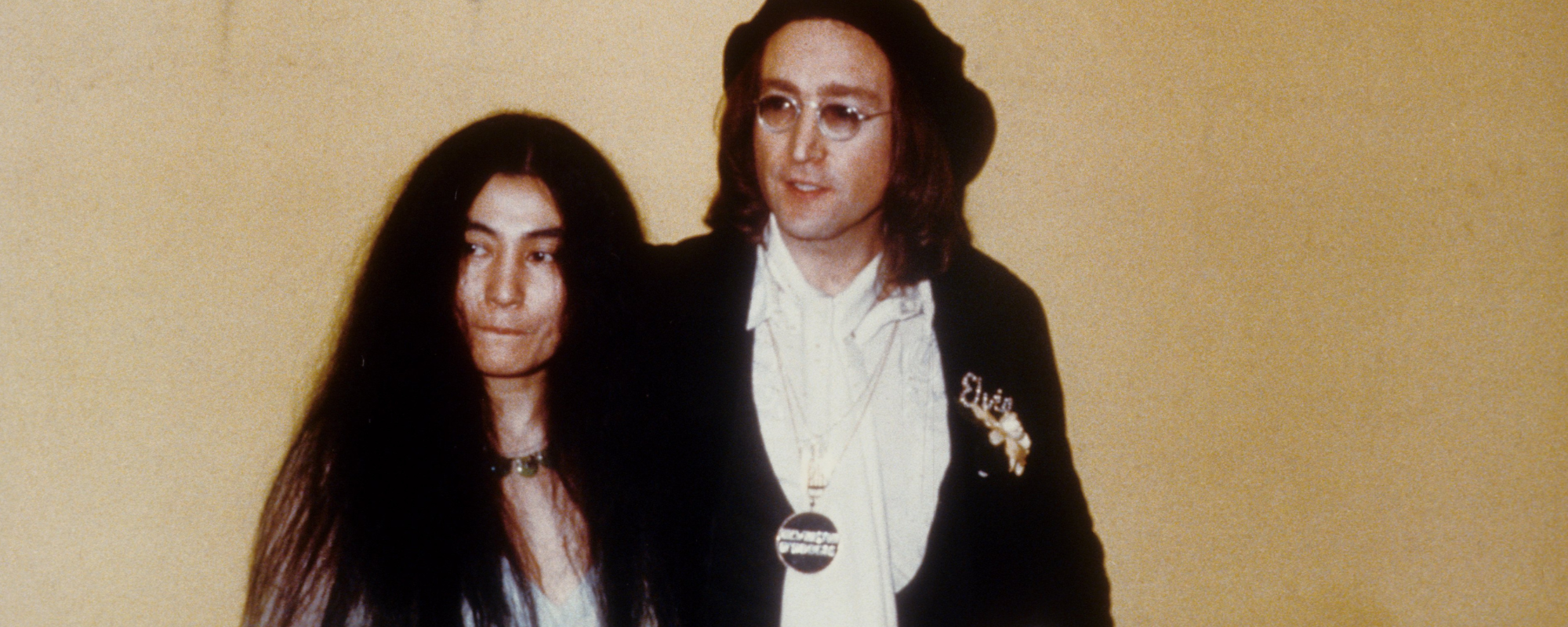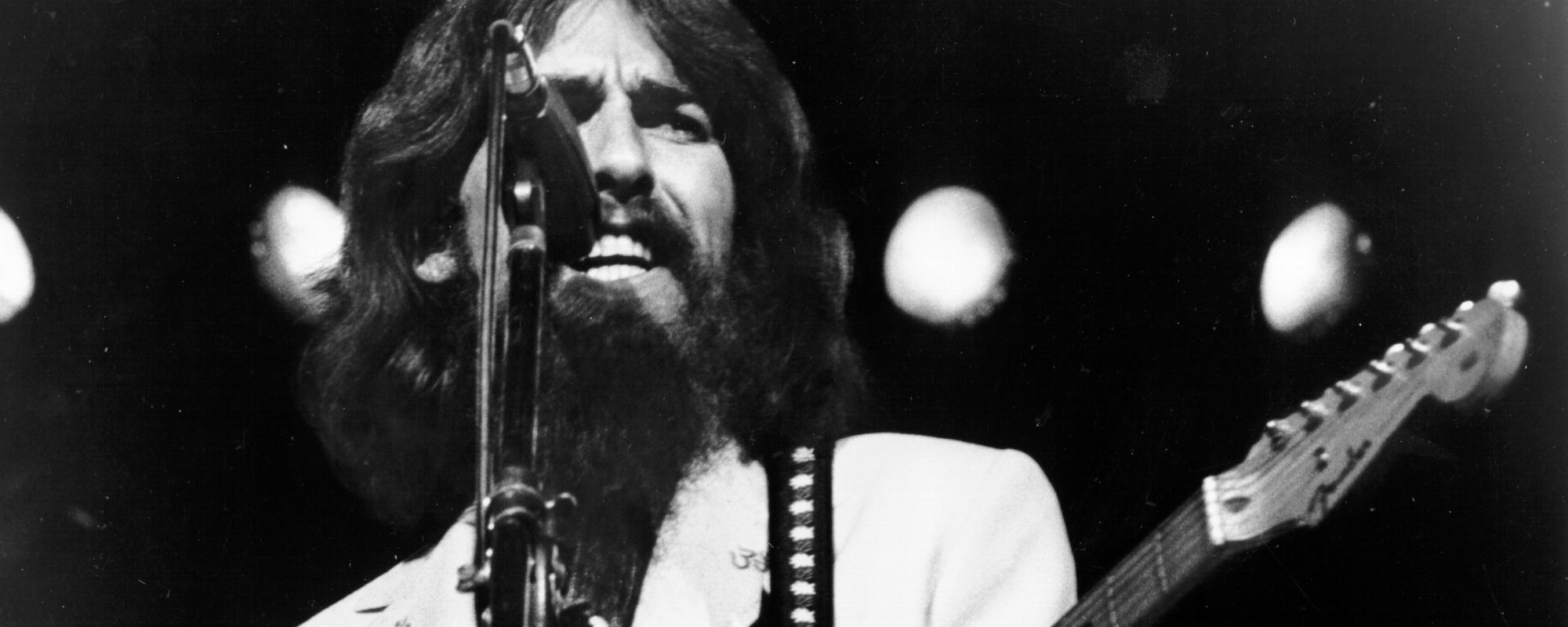Neil Young released an electronic album one year after New Order’s debut Movement. But Movement still sounds like Joy Division, the post-punk band whose ashes New Order rose from following Ian Curtis’s suicide in 1980.
Videos by American Songwriter
Using equal parts krautrock and the early sounds of MTV, Young began what became a hostile relationship with his new label, Geffen Records. (In 1982, Young left his longtime label Reprise Records and signed with David Geffen’s company.)
Trans, Young’s first album for Geffen, alienated fans and frustrated his record label, both of whom wished he’d return to either the sounds of Harvest or the Crazy Horse proto-grunge of “Cortez the Killer.”
However, even by Young’s standards, Trans marked a radically new direction. Inspired by Kraftwerk, the Canadian folk singer replaced his guitars with a Synclavier synthesizer and altered his voice with a vocoder. The album also resulted from Young’s attempts to communicate with his son Ben, who was born with cerebral palsy. Trans continued the repetitive arrangements—a hallmark of electronic music—he began on Re·ac·tor (1981).
Flying Cars and Trucks
“Computer Age” is about finding humanity in a world of buttons and algorithms. Young wrote about this anxiety in 1982, but, like today, it wasn’t new then. New information systems like the printing press and television caused a moral panic in societies, as in the current conversations around artificial intelligence.
Cars and trucks
Fly by me on the corner
But I’m all right
Standing proud before the signal
When I see the light
I know I’m more than just a number
And I stand before you
Or else we just don’t see the other
However, while Young searches for humanity in “Computer Age,” it’s also a metaphor for his attempts to communicate with his son—his effort to stand before you, or else we just don’t see the other.
I need you
To let me know that there’s a heartbeat
Let it pound and pound
And I’ll be flying like a free bird
And you need me
Like ugly needs a mirror
And day by day
This horizon’s getting clearer
OK Computer
Young explained to Rolling Stone the difficulties of communicating with his son through computers.
“If you listen to Trans, if you listen to the words to ‘Transformer Man’ and ‘Computer Age’ and ‘We R in Control,’ you’ll hear a lot of references to my son and to people trying to live a life by pressing buttons, trying to control the things around them and talking with people who can’t talk, using computer voices and things like that. It’s a subtle thing, but it’s right there. But it has to do with a part of my life that practically no one can relate to.”
Added Young, “So my music, which is a reflection of my inner self, became something that nobody could relate to. And then I started hiding in styles, just putting little clues in there as to what was really on my mind. I just didn’t want to openly share all this stuff in songs that said exactly what I wanted to say in a voice so loud everyone could hear it.”
Geffen Wanted a Rock and Roll Album
Following Trans, Geffen asked for a rock and roll album. Young responded with a ’50s-inspired rockabilly album called Everybody’s Rockin’. The album’s commercial failure led to a lawsuit in which Geffen claimed Young violated his contract by recording albums that were “musically uncharacteristic of [his] previous recordings.”
Young countersued, arguing his contract gave him creative control over his work. Reflecting on his time with Geffen, Young told Mojo, “They were all surface songs, but see, there was a time when music was like that when all pop stars were like that. And it was good music, really good music.”
Looking for a Connection
“Computer Age” explores human communication and affection through changing technology. Though at its heart, it’s about a father trying to communicate with his son.
Trans may have angered Young’s record label, whose primary purpose is to sell music, but the message is timeless. Forty-two years later, humans still grapple with their relationship with technology as limitless digital connection creates the unintended consequence of fragmentation and solitude.
Meanwhile, Young defiantly refused to be categorized. He said, “Plus, it was a way of further destroying what I’d already set up. Without doing that, I wouldn’t be able to do what I’m doing now. If I build something up, I have to systematically tear it right down before people decide, ‘Oh, that’s how we can define him.’”
When you purchase through links on our site, we may earn an affiliate commission.
Photo by Hulton Archive/Getty Images












Leave a Reply
Only members can comment. Become a member. Already a member? Log in.